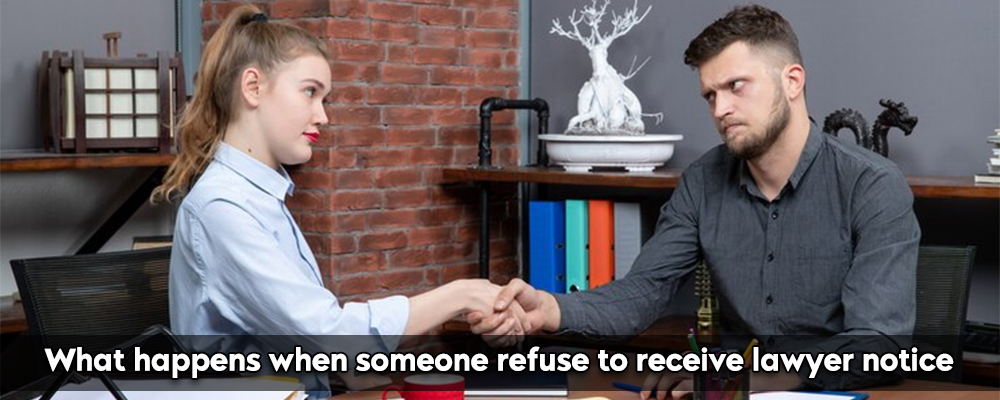Every institution, organization, and person is subject to some sort of legal framework. In order to resolve disagreements between two or more parties, legal proceedings are used. The aggrieved party must decide whether to use formal courtroom mediation.
Before the problem is resolved in court, the aggrieved party must file a petition in order to get a remedy and serve the other party with a legal notice or counsel.
Lawyers Notice: About
- A legal notice, also known as an attorney notice, is a letter or notification delivered to a party you intend to sue in court. No legal action can be taken in the absence of legal notification. It is the sole process that makes filing a lawsuit legitimate.
- Therefore, an official communication or letter delivered to a person, corporation, or organization notifying any additional parties of your intention to file a lawsuit against them is known as a legal notice. It is a procedure mandated by a court of law to provide people or organizations with pertinent facts and laws regarding a subject.
Need A Legal Advice
The internet is not a lawyer and neither are you. Talk to a real lawyer about your legal issue

Importance of Lawyers Notice
Courts are overflowing with cases these days. Because of this, a lawsuit is now the last resort for anyone who requires a risk-taking solution for their issue. A formal, lawful continuation is a costly, moderate process. This is the cause it is always appropriate to record a legal notice before to filing a lawsuit. The following reasons make the plaintiff’s filing of a legal notification crucial:
- The appellant can explain his complaints to the respondent by sending a lawyer’s notice.
- By addressing certain issues, the person who receives the notice can avoid going to court.
- Without involving the parties in the arduous process of litigation, the disagreement can be resolved out of court.
- The legal notice offers the parties the chance to use Alternative Dispute Resolution procedures to resolve their differences.
What Occurs When Someone Rejects a Notice from a Lawyer?
- When an attorney or legal notice is denied, nothing legally occurs. The notice’s primary goal is to inform you, and it accomplishes this goal whether you accept it or not. The sending party may proceed with filing a case for you as soon as formal notice is served.
- However, there are consequences for turning down a court notice. Refusing to comply with a notice might have legal ramifications; you may be asked to explain your decision, and the judge may assume that the charges and grievances stated in the notice are genuine. The presumption of service or an adverse inference may be made against you depending on the circumstances and the applicable legislation.
- A defamation lawsuit being brought against you in court is the only other foreseeable outcome of failing to reply to a defamation notice. You are going to get a summons from the court to appear in person and respond to the charge brought forth by the other party as soon as the defamation lawsuit is filed.
Why Is It Important to Reply to a Legal Notice?
- Yes, regardless of whether the matter is criminal or civil in nature, it is always good to reply to an attorney or legal notice.
- It is advantageous for the defendant to respond to a notice after fully comprehending its terms since, at this point, the defendant can refute any accusations made against them. It might make your position on the issue or disagreement obvious.
- In civil disputes, it is likely that you may receive a default judgment, that is, a judge will hear the other side’s argument and render a decision in absentia that may be against you, if you do not respond.
- It’s probable that you will be investigated and held until the case is resolved if it’s a criminal case.
- The defense should always reply to the lawyer’s notice since failing to do so gives the plaintiff/appellant the upper hand.
Role of the Judiciary
- In the case of Archana Singh v Surendra Bahadur Singh, the respondent has refrained from showing up in court. According to the postal remarks, he did not accept the notice that was attempted to be sent to him. As a result, the court decided to handle this case based on notice that was refused to be served.
One can talk to a lawyer from Lead India for any kind of legal support. In India, free legal advice online can be obtained at Lead India. Along with receiving free legal advice online, one can also ask questions to the experts online free through Lead India.





 Talk to a Lawyer
Talk to a Lawyer